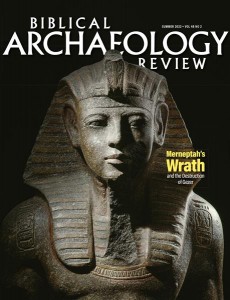Epistles: Whence-a-Word?: Chasing After Wind
“All is vanity and a chasing after wind,” proclaims the Book of Ecclesiastes (Qoheleth, in Hebrew). The notoriously pessimistic biblical book pairs the metaphor of the wind (ruah) with the concept of “vanity” (hebel, which literally means “vapor”) six times (e.g., Ecclesiastes 1:14; Ecclesiastes 2:11, Ecclesiastes 2:26) to underscore the folly, futility, and transitory nature of all human toils for understanding the world and finding meaning and happiness. To be chasing after wind is therefore a synonym for any futile endeavor, a chasing of elusive goals.
Though rooted in and disseminated by the Bible, the phrase might have its origins in ancient Near Eastern literature. A particularly close parallel is found in the Mesopotamian Epic of Gilgamesh, where the protagonist says to his friend Enkidu, “Whatever one may achieve, it is but wind.” Because this phrase is not the only seeming parallel to Ecclesiastes, some assume that the anonymous biblical author knew and was inspired by this work. But it is also possible that the expression was a common idiom used throughout the ancient Near East.
In modern times, the phrase is the focal point of the satirical allegory The Labyrinth of the World and the Paradise of the Heart, by John Amos Comenius (1592–1670), a Moravian philosopher and theologian. The work tells the story of a pilgrim visiting a city (the world), where he observes different human conditions, occupations, and pursuits, only to discover that all is vanity, “a chasing after wind,” unless one turns to his heart to find God.
Already a library member? Log in here.
Institution user? Log in with your IP address.

